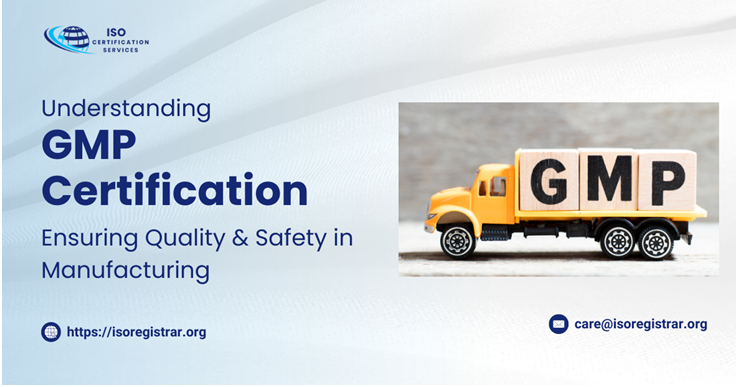Understanding GMP Certification: Ensuring Quality & Safety in Manufacturing

Good Manufacturing Practices (GMP) certification is a critical component in the production and distribution of pharmaceuticals, food products, medical devices, and other regulated industries. This certification ensures that products are consistently produced and controlled according to quality standards, minimizing risks involved in production that cannot be eliminated through final product testing alone. This article delves into the importance of GMP Certification, the certification process, and its impact on industries and consumers.
The Importance of GMP Certification
GMP guidelines are designed to ensure that products are of high quality and do not pose any risk to the consumer or patient. The importance of GMP certification can be broken down into several key areas:
Consumer Safety
GMP certification is primarily concerned with the safety of the end consumer. By adhering to GMP guidelines, manufacturers can ensure that their products are free from contamination, consistent in quality, and manufactured in a hygienic environment. This is particularly crucial in the pharmaceutical and food industries, where poor manufacturing practices can lead to serious health hazards.
Regulatory Compliance
For companies operating in regulated industries, GMP certification is often a legal requirement. Regulatory bodies like the Food and Drug Administration (FDA) in the United States, the European Medicines Agency (EMA) in Europe, and various national agencies worldwide enforce GMP compliance. Non-compliance can result in severe consequences, including product recalls, fines, and even the shutdown of manufacturing facilities.
Market Access and Competitive Advantage
Having GMP certification opens doors to international markets, as many countries require this certification for imported products. It also provides a competitive edge, as consumers and business partners are more likely to trust and choose certified products over non-certified ones. This trust can translate into increased sales and a stronger market position.
The GMP Certification Process
Obtaining GMP certification involves a comprehensive process that ensures a manufacturer meets all the necessary standards. The process generally includes the following steps:
1. Understanding GMP Requirements
The first step for any company seeking GMP certification is to understand the specific requirements applicable to their industry. GMP guidelines cover various aspects of production, including facility design, raw material quality, employee training, equipment maintenance, and record-keeping. These guidelines can vary slightly depending on the product being manufactured and the regulatory body involved.
2. Conducting a Gap Analysis
A gap analysis helps identify areas where current practices fall short of GMP requirements. This involves reviewing existing processes, facilities, and documentation to pinpoint discrepancies. The gap analysis provides a roadmap for the necessary changes and improvements needed to achieve compliance.
3. Implementing Necessary Changes
Based on the findings of the gap analysis, companies must implement changes to meet GMP standards. This could involve upgrading facilities, enhancing staff training programs, revising standard operating procedures (SOPs), and improving quality control measures. These changes are essential for ensuring that all aspects of production align with GMP guidelines.
4. Pre-Assessment Audit
Before the final certification audit, a pre-assessment audit is often conducted to evaluate the effectiveness of the implemented changes. This internal audit helps identify any remaining non-conformities and provides an opportunity to address them before the official inspection.
5. Certification Audit
The certification audit is carried out by an accredited third-party certification body. During this audit, inspectors assess compliance with GMP standards through detailed evaluations of production processes, facilities, documentation, and overall quality management systems. The audit typically includes facility tours, employee interviews, and a review of records and procedures.
6. Corrective Actions and Certification
If the certification audit identifies any non-conformities, the company must take corrective actions to address these issues. Once all non-conformities are resolved, and the company meets GMP standards, the certification body issues the GMP certificate. This certificate is valid for a specified period, usually one to three years, after which re-certification is required.
Impact of GMP Certification on Industries and Consumers
Enhanced Product Quality
GMP certification ensures that products are manufactured to the highest quality standards. This leads to fewer defects, recalls, and customer complaints. High-quality products enhance customer satisfaction and loyalty, which is essential for long-term business success.
Increased Operational Efficiency
Implementing GMP guidelines often leads to more efficient manufacturing processes. Standardized procedures, well-maintained equipment, and trained personnel reduce the likelihood of production errors and downtime. This efficiency can result in cost savings and improved profitability for manufacturers.
Improved Brand Reputation
Companies with GMP certification are perceived as trustworthy and reliable. This certification demonstrates a commitment to quality and safety, which can enhance a company’s reputation in the market. A strong brand reputation attracts new customers and helps retain existing ones.
Regulatory Approval and Market Expansion
GMP certification is often a prerequisite for regulatory approval in many countries. Certified companies can more easily navigate the regulatory landscape and expand into new markets. This can lead to significant growth opportunities and increased revenue streams.
Consumer Confidence
For consumers, GMP certification is a mark of assurance. It indicates that the products they are using are safe, effective, and manufactured under stringent quality controls. This confidence is particularly important in the pharmaceutical and food sectors, where the consequences of poor quality can be severe.
Note: Apply for ISO Certification through our official Portal.
Conclusion
GMP certification is a fundamental aspect of quality assurance in various industries, ensuring that products are safe, effective, and of high quality. The certification process involves understanding regulatory requirements, conducting gap analysis, implementing necessary changes, and undergoing rigorous audits. The benefits of GMP certification are manifold, including enhanced product quality, operational efficiency, improved brand reputation, regulatory approval, and increased consumer confidence. For manufacturers, obtaining GMP certification is not just about compliance; it is about demonstrating a commitment to excellence and prioritizing the well-being of consumers. As industries continue to evolve, GMP certification will remain a cornerstone of quality assurance and a critical factor in achieving long-term success and consumer trust.





